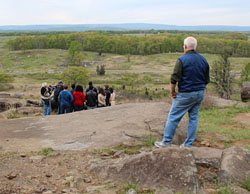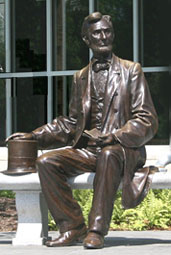Life, Light and Lincoln
Written by Tony Mussari
Edited by Kitch Loftus-Mussari
Copyright 2012
Mussari-Loftus Associates
All Rights Reserved
The Face of America Project
Let us at all times remember that all Americans are brothers of a common country, and should dwell in the bonds of fraternal feeling. Abraham Lincoln
Life and Lincoln
Kitch and I have been spending a good of our time producing our documentary Walking Into The Light at Gettysburg. It has been a demanding and delightful experienced.
producing our documentary Walking Into The Light at Gettysburg. It has been a demanding and delightful experienced.
It forced us to immerse ourselves in the history of the Civil War, and it opened our eyes to the brilliance and compassion of Abraham Lincoln.
While he was President, he was vilified by his detractors.
Nevertheless, he remained true to his beliefs.
Early one morning while I was doing research for the documentary, I found an insightful comment about President Lincoln. It was written by T.V. Smith:
This Lincoln, whom so many living friends and foes alike deemed foolish, hid his bitterness in laughter; fed his sympathy on solitude; and met recurring disaster with whimsicality to muffle the murmur of a bleeding heart. Out of the tragic sense of life he pitied where others blamed; bowed his own shoulders with the woes of the weak; endured humanely his little day of chance power; and won through death what life disdains to bestow upon such simple souls—lasting peace and everlasting glory.
When pressed for an answer to the question, “What is America at its best?” Smith’s description of Abraham Lincoln comes to mind. The man who saved the union and lost his life doing it was caring, compassionate, and thoughtful. He saw public office as an opportunity to serve others, not himself. He did not complain, and he never walked away from his responsibilities. He wanted America to be a country deeply rooted in belonging, community and confraternity.
For kitch and me, Abraham Lincoln is the personification of America at its very best.
Please provide feedback to:
tony.mussari@gmail.com